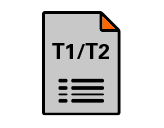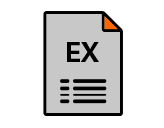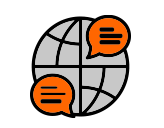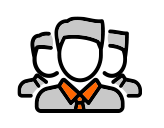Under certain conditions, import VAT does not need to be paid on goods imported into the Netherlands. This Dutch system can be used by businesses in other EU Member States or non-EU Member States to not pay import VAT.
Limited fiscal representation (LFR)
Import VAT needs to be paid on imports into most of the EU Member States. However, the importer can reclaim this VAT from the Dutch Tax and Customs Administration. Under certain conditions, import VAT does not need to be paid on goods imported into the Netherlands. This Dutch system can be used by businesses in other EU Member States or non-EU Member States to not pay import VAT, creating improved liquidity. Clearing goods with limited fiscal representation has another important advantage: the goods are released after the import declaration and may be transported without supervision by the customs authorities. The saying ‘Logistics leads Customs’ is then fully accurate.
Limited fiscal representation (LFR) can be applied to the import of goods into the Netherlands which are destined for businesses located in another Member State. For example, if a German importer imports goods via Hamburg, they have to pay German import VAT which can be reclaimed afterwards. But, if these goods enter the EU through Rotterdam, the German importer does not need to pay import VAT. Instead, the VAT is settled between the customs broker who makes the import declaration in Rotterdam and the German importer.
VAT obligations
All import duties and other VAT obligations are payable when submitting an import declaration with LFR. However, the VAT obligations are taken over by the limited fiscal representative making them responsible and liable for VAT upon importation. Once the import declaration has been made, the goods count as free goods without customs obligations and can be transported to Germany without customs interference, lending greater flexibility to the logistics process. The limited fiscal representative must now deliver the goods to the German importer for VAT purposes, which means that they must meet all the obligations associated with an Intra-Community supply from the Netherlands to Germany.
Authorization
The limited fiscal representative must be authorized to act as a limited fiscal representative. This authorization is usually granted by the German importer but can also be issued by the seller from the USA. Subsequently, the customs agent must check the VAT number of the person or business who bought the goods. The limited fiscal representative must then include the supply subject to VAT in the monthly listing and report all necessary data to Statistics Netherlands on a monthly basis. The limited fiscal representative therefore acts as if they are selling the goods into Germany themselves.
Licences and authorizations
To act as a limited fiscal representative, the business must have the necessary licences and authorizations. The vast majority of LFR licences are issued to customs brokers, as the use of these authorizations is linked to an import declaration which, in the Netherlands, is generally drawn up by customs brokers. These licences are issued by the tax authorities and not by the customs authorities. One of the licensing conditions is that a surety is issued by the licensee to the tax authorities to cover any amounts to be claimed, as the tax authorities want to be sure that they can collect any tax due from the limited tax representative. The liability of the fiscal representative is limited to the VAT on the import transactions. However, the representative can make as many declarations as they want, making them liable without limitation. This means that they must therefore also pay if a VAT claim is higher than the deposit provided. The tax authorities check whether the licence and authorization are correctly observed. These checks mostly result from signals from other EU Member States that give the Dutch tax authorities cause for further investigation. For example, there might be mismatch in the VAT Information Exchange System (VIES) between the details of deliveries to a company and the declarations of acquisitions by the purchasing company. This mismatch can then only be clarified by carrying out an investigation at the buyer’s and seller’s premises. In many cases, the mismatch is due to an administrative error or chain transactions that have been incorrectly entered and settled. But as fraud may also occur, it is important for the limited fiscal representative to have their administration, so that they are always able to prove the correct delivery of the goods and clear themselves from liability.
Acquisition letter
It is therefore essential that the limited fiscal representative keeps their liability under control. The tax authorities cannot hold them liable if they can prove supply to a taxable business following the import, but this must be demonstrable in all the books and documents. The supply to another Member State can be proven with a waybill signed for receipt, such as a CMR. Maco Customs Service will also send the recipient of the goods a digital acquisition letter in as many variants of limited fiscal representation as possible per period. This acquisition letter lists all import declarations that have been made for that importer in a given period. By digitally signing and returning the acquisition letter, the recipient confirms that they have received the goods and that they will enter them in their VAT accounts. For the importer, the letter of acquisition is an extra check to see whether all consignments have been correctly recorded in the VAT administration.
A-B-C transactions
Most trade transactions are A-B transactions where seller A sells something to buyer B. But there are also many A-B-C transactions where seller A from the USA sells something to B in Germany while the goods are delivered to C in France. Limited fiscal representation is also an option for these types of A-B-C transactions, but is subject to additional obligations for B, C, and the representative.
Delivery in the Netherlands and export
After the import of the goods into Rotterdam, it is also possible that these are delivered to a Dutch business in the Netherlands. This delivery is subject to Article 12.3 of the Dutch Turnover Tax Act (Wet op de omzetbelasting). Goods can also be exported to countries outside the European Union, but the limited fiscal representative must then be able to demonstrate the export with an export declaration. This system is so flexible that it is possible to store and distribute goods from the Netherlands to all possible destinations.
A distribution country
It is clear that the system of limited fiscal representation is incredibly versatile and highly advantageous for distributors and logistics companies. Because the Netherlands is a distribution country, submitting declarations with limited fiscal representation is common. Maco Customs Service is an experienced specialist in this field but insists that there needs to be efficient cooperation between the carrier and the importer (and the exporter if applicable) and everyone has to fulfil their administrative obligations.
Competitive advantage
Limited fiscal representation (LFR) can be used in all European Member States. But because the Netherlands is a transit country, we benefit all the more – especially in the case of transit to Germany. If goods for a German importer are imported directly into Germany via Hamburg, the importer has to pay VAT. But, if these goods enter the EU through Rotterdam, the German importer does not need to pay import VAT, giving them significantly improved liquidity. As a result, many non-Dutch companies that transport goods via the Netherlands make use of LFR, as it offers improved liquidity and logistical flexibility. But Germany also makes use of LFR in the port of Hamburg for the transit of goods to countries such as Poland. What makes the Netherlands and Belgium unique, however, is that goods can be distributed and kept in stock under LFR. Many internationally operating companies choose to have their European import, storage, and distribution run via the Netherlands using LFR. An additional advantage for many is that it is not necessary to legally establish themselves in the Netherlands, while trade and logistics can still be organized flexibly and reliably.







